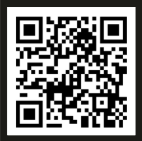Below is a list of resources that can help you manage your post stroke recovery. This is not a full list of what is available online and in your community but serves as a starting point.
The Guide for Stroke Recovery book and website allows you to easily navigate information on a number of topics related to stroke recovery such as: communication, fatigue, return to work, driving, equipment and exercise. The book is available in five languages: English, Simplified Chinese, Italian, Portuguese and Punjabi.
You can find practical tips, video demonstrations and answers to common questions or concerns after stroke. Click on any of the topics below for more information.
During your hospital stay, a staff member may speak to you about repatriation to your home hospital. Repatriation means that you will be moved to a stroke unit in a hospital near your home. This process was designed so other people who may need the specialized services from the Regional Stroke Centres can also receive it. A brochure explaining the process is available below. Click on the red text to access your preferred language:
Click on the red text to access a checklist:
Post stroke checklist: a simple and easy to use tool that helps persons with stroke, family members, caregivers and/or healthcare providers identify changes and problems that need to be discussed and/or addressed.
Enabling self-management following stroke: a checklist for patients, families, and caregivers: designed to support those who are transitioning home after a stay in hospital. It provides tips to help guide recovery after stroke while aligning to Canadian Stroke Best Practice Recommendations.
The stroke prevention clinic patient summary: a tool you can bring to a stroke prevention clinic appointment to track personalized information about your diagnosis, risk factors and plan of care.
Virtual (online) healthcare checklist: a guide that will help you make the most of your virtual appointments.
Click on the red text to access the resource:
Stroke in Young Adults: A Resource for Patients and Families: this booklet is for young adults, their families and caregivers.
Young Stroke Survivors Podcast – A Journey into Stroke Recovery: come and listen to other survivors and life partners share their stories, challenges and successes. In this first episode, a young stroke survivor named Perry details the experience of his stroke and the changes to his life afterwards.
Click on the red text to access the resource:
Sinai Health – Stroke Education Series: created by Hennick Bridgepoint Hospital, part of Sinai Health, in collaboration with patients, families and caregivers. The 6 videos offer practical information and tips about recovering after having a stroke.
Canadian Partnership for Stroke Recovery - Self Management Videos: video series developed by the Calgary Stroke Program in partnership with Heart & Stroke. Resource sheets have been tailored for Ontarians and are available under each video.
Living with Stroke Series: this video series from the Heart & Stroke, includes information from various professionals that may be part of the care team, along with stroke survivor stories.
In 2024, The South East Toronto Stroke Network launched a multilingual radio campaign to help spread education on stroke prevention and awareness to diverse communities across Toronto. Topics include:
Below are the links to the recordings of the radio segments.
Click on the red text to listen:
1) Dr. Jeffery Wang - 中文 (Mandarin)












Click on the red text to access the website:
Heart and Stroke: this site offers information about stroke, heart disease, surgeries and treatments.
Canadian Stroke Best Practice Recommendations: provide up-to-date evidence-based guidelines for the prevention and management of stroke, and to promote recovery and reintegration for people who have experienced stroke (patients, families and informal caregivers).
Stroke Engine: this site reviews assessment tools useful in stroke rehabilitation. It includes information about the impact of stroke and resources for patients and families.